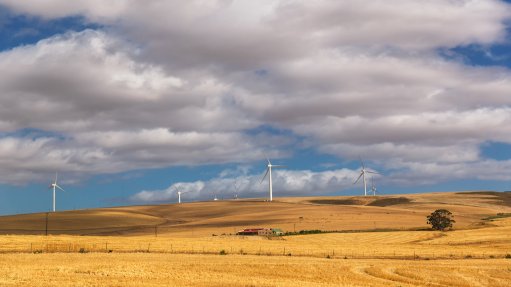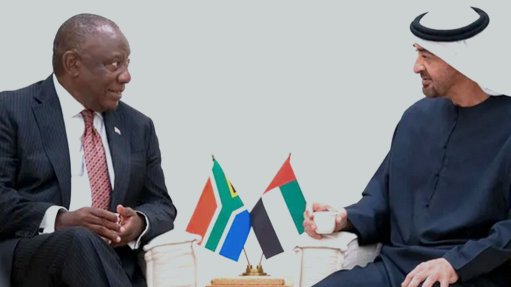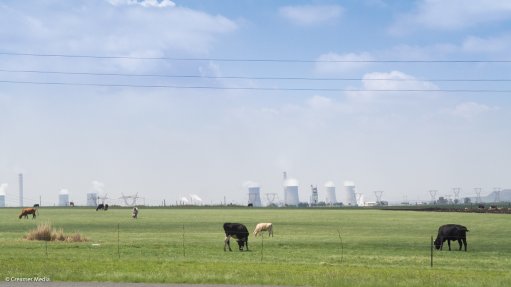BCG report shows strategic importance of Africa in global supply chains
Africa, and other Global South nations, is growing its strategic importance in securing global supply chains, fostering young and expanding workforces and developing growing consumer markets, says consulting firm Boston Consulting Group (BCG).
BCG’s 'In a Multipolar World, the Global South Finds Its Moment' report, explores how Africa and other Global South nations are rising to prominence. Africa's pragmatic approach to climate action, balancing sustainability with growth, further underscores its role in shaping the future, the firm says.
Africa is emerging as a pivotal player in the Global South, crafting its own economic and diplomatic path in a multipolar world. Nations across the continent are driving global economic growth and shaping the future by deepening trade and investment relationships with the rest of the world, leveraging abundant resources, dynamic workforces and expanding markets, the report states.
The report emphasises the shifting dynamics of world trade towards the Global South.
It also highlights that investing in supply-chain resilience, building geopolitical muscle, developing localised strategies and embracing sustainability as a growth lever can help African business leaders position for the future.
While accounting for about 18% of global GDP currently, Global South economies are projected to grow at an average of 4.2% a year through to 2029, thereby driving most of the global growth.
This rise in trade dominance is projected to grow at a 4.4% compound annual growth rate over the next five years, with Global South trade estimated to reach $14-trillion by 2033, BCG says.
“The Global South is increasingly asserting its agency, moving beyond traditional roles to become crucial swing players in a fractured world. They represent the future of global growth, having critical resources, youthful populations and expanding consumer markets.
“A decade ago, the US and EU were dominant trading partners with Africa. However, China has become the top partner for many African nations with trade between the Global South.
“China is projected to grow faster than North-South trade and is set to become the leading investor in many economies,” says BCG Casablanca MD and partner Badr Choufari.
This is supported with the Global South surpassing advanced economies in attracting foreign direct investment in 2023 ($525-billion versus $464-billion).
In terms of emerging trade dynamics, given the changing environment, African nations are moving towards value-driven trade by processing resources domestically, rather than just exporting raw materials.
This strategic shift is positioning them as essential backbones in global value chains as companies seek diversified manufacturing locations, the report states.
This is further enhanced by the use of economic and geopolitical leverage with Global South nations pursuing strategic investments and technology acquisition through sophisticated balancing acts between major powers.
Geopolitical platforms like BRICS Plus, which includes Egypt, Ethiopia and South Africa, facilitate this multi-aligned approach.
However, this is offset by Global South nations having to balance growth needs with sustainability, and the pursuit of gradual energy transitions.
Many have vast natural carbon sinks, offering potential for nature-based climate solutions and economic opportunities, BCG avers.
US POLICY
Further, the new era of US trade policy is expected to significantly impact African trade. Rising US tariffs could reduce the competitiveness of African goods and disrupt global supply chains, affecting exports and potentially leading to job losses, the report says
The US shift towards bilateral deals and the uncertain future of the African Growth and Opportunity Act (AGOA) add to the challenges.
South Africa is particularly vulnerable in this shifting trade environment. Trade with the US makes up about 13% of South Africa's exports.
The non-renewal of AGOA could end the duty-free status for 25% of these exports, potentially reducing them by $397-million. The US tariff threat risks up to 2% of South Africa's GDP, and may affect key sectors, BCG says in the report.
South African business leaders should focus on swift action, says BCG Johannesburg partner Trudi Makhaya.
Companies need to mobilise an internal Tariff Impact Command Centre to map immediate actions, while working to support fact-based advocacy on US-South Africa trade relations, refine go-to-market strategies, deepen technical trade capabilities, and reconfigure supply chains.
“Addressing these challenges head-on is crucial for African nations to navigate the complexities of the emergent trade order and to ensure sustainable economic growth,” she adds.
Meanwhile, despite progress, many African countries continue to grapple with infrastructural deficits and governance challenges, which are critical to overcome for sustained growth.
Additionally, maintaining stable trade amidst rising economic nationalism and high borrowing costs necessitates delicate diplomacy and strategic positioning.
By tackling these issues head-on, African nations can pave the way for a more prosperous and stable future, the report states.
By promoting economic growth, building stable trade relationships, maintaining geopolitical balance, and demonstrating pragmatic environmental stewardship, Africa and other Global South nations are creating unprecedented opportunities for governments and businesses.
Those who recognise this shift early and actively engage will quickly adapt to the new global reality, as well as help define it.
Article Enquiry
Email Article
Save Article
Feedback
To advertise email advertising@creamermedia.co.za or click here
Comments
Press Office
Announcements
What's On
Subscribe to improve your user experience...
Option 1 (equivalent of R125 a month):
Receive a weekly copy of Creamer Media's Engineering News & Mining Weekly magazine
(print copy for those in South Africa and e-magazine for those outside of South Africa)
Receive daily email newsletters
Access to full search results
Access archive of magazine back copies
Access to Projects in Progress
Access to ONE Research Report of your choice in PDF format
Option 2 (equivalent of R375 a month):
All benefits from Option 1
PLUS
Access to Creamer Media's Research Channel Africa for ALL Research Reports, in PDF format, on various industrial and mining sectors
including Electricity; Water; Energy Transition; Hydrogen; Roads, Rail and Ports; Coal; Gold; Platinum; Battery Metals; etc.
Already a subscriber?
Forgotten your password?
Receive weekly copy of Creamer Media's Engineering News & Mining Weekly magazine (print copy for those in South Africa and e-magazine for those outside of South Africa)
➕
Recieve daily email newsletters
➕
Access to full search results
➕
Access archive of magazine back copies
➕
Access to Projects in Progress
➕
Access to ONE Research Report of your choice in PDF format
RESEARCH CHANNEL AFRICA
R4500 (equivalent of R375 a month)
SUBSCRIBEAll benefits from Option 1
➕
Access to Creamer Media's Research Channel Africa for ALL Research Reports on various industrial and mining sectors, in PDF format, including on:
Electricity
➕
Water
➕
Energy Transition
➕
Hydrogen
➕
Roads, Rail and Ports
➕
Coal
➕
Gold
➕
Platinum
➕
Battery Metals
➕
etc.
Receive all benefits from Option 1 or Option 2 delivered to numerous people at your company
➕
Multiple User names and Passwords for simultaneous log-ins
➕
Intranet integration access to all in your organisation


















